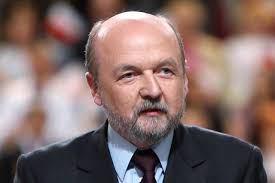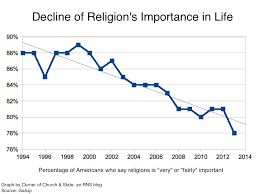Naturally I endeavored to impart my worldview to my daughter. Most of my lifetime was dominated by the struggle between communism, which I considered a great evil, and the West, whose fundamental values I have sacralized. This she knows well. And so it was as a kind of intellectual provocation that she gifted me with a 2016 book arguing that the system of liberal democracy is really, after all, not so different from communism.
It’s by Ryszard Legutko, titled The Demon in Democracy – Totalitarian Temptations in Free Societies. That sounded intriguingly timely when, as I have recently written, democracy seems to be going off the rails, with voters making all kinds of bad choices. Though “totalitarian” may be too strong a word; “authoritarian” is more apt. Such a temptation has indeed seduced Turkey; the author’s own Poland; Russia (albeit never a free society) seems drunk with authoritarianism (as well as vodka); and of course America’s electorate has pulled a monumental boner.

Both he sees as more or less similarly ideologically oppressive. To his eye, liberal-democratic culture apes communism in ruthless enforcement of ideological orthodoxy — “political correctness.” I myself have written critically in this vein. But as a philosopher Legutko maddeningly writes in abstract generalities, virtually eschewing concrete illustrative facts. For example, one of his pet targets is feminism in all its manifestations. Yet for all his inveighing against feminist political correctness, he never mentions how Lawrence Summers fell victim to it. Nor any other such actual evidence to corroborate his jeremiad.

Legutko
Homosexuality is another of his pet peeves. The remarkably rapid evolution in societal mores vis-a-vis homosexuality has thrown a lot of traditionalists for a loop, and Legutko is one of them. He deems it shameful that what he considers good arguments against gay marriage (though he doesn’t actually recite them) no longer get a fair hearing. (I don’t think they’re good arguments, but thinly veiled prejudice.) But here too Legutko inexplicably fails to mention a perfect example supporting his case, that of Brendan Eich, ousted from a corporate leadership post for backing a California referendum against gay marriage.
Eventually, the author’s principal animus becomes clear. It’s what he sees as the “war on Christianity.” He actually uses those words, likening it, in “liberal-democracy,” to what he says were communism’s horrifying atrocities trying to exterminate religion. Legutko writes that “Christians are — and it must be repeated over and over — the most persecuted religious group in the world.” Seriously?

Nevertheless, he says the case reflected “coldness to the plight of Christians and Christianity,” which he believes merit a privileged public position: “the religion that has been of paramount importance is being equalized with the religions that had no importance at all.” Legutko says Christianity is “not just a religion, but a vital spiritual element of Western identity.” It’s “the last great force that offers a viable alternative to the tediousness of liberal-democratic anthropology.” By rejecting Christianity, “Europe, and indeed, the entire West not only slides into cultural aridity . . . but also falls under the smothering monopoly of one ideology.”
Perhaps Legutko, in his fixation on Christian religion, has failed to notice that Europe and the West today, far from being ideologically monolithic, are in fact politically riven, polarized between radically different ideologies. As witness the French runoff between Le Pen and Macron, who agreed on almost nothing. This highlights too a crucial difference, that Legutko studiously avoids talking about, between communism and “liberal-democracy” — that is, the democracy part. Communist regimes, of course, conducted no such elections. That was true ideological monopolization. Legutko’s effort to equate the two systems is ultimately just ridiculous.

* Never mentioned in the book is Legutko’s affiliation with Poland’s reigning “Law and Justice” party — assiduously undermining Poland’s democracy and rule of law. It seems Legutko himself suffers from the temptation of his book’s title.
Advertisements